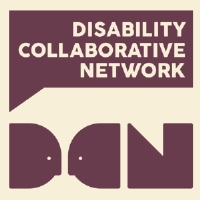We wrote about the Employers Stammering Network (ESN)
https://www.musedcn.org.uk/2016/05/26/the-employers-stammering-network/) a year ago.
We know that stammering is still too often a hidden disability at work. The result? It can be difficult
- for people to use their strengths and talents to the full
- for employers and colleagues to understand what changes can make a big difference.
We’re here to change that. So we’ve been working to make it easier for everyone to talk about stammering. We’d like to:
- Share some facts and figures
- Tell you what we’ve been doing
- Work with you.
Some facts
- Stammering affects about 380,000 adults of working age in the UK
- That’s 1 in 100 people
- About 4 times more men stammer than women
- Research shows people who stammer have slightly different brain anatomy/function
- But stammering only affects speech fluency, not intelligence or ability
- Stammering usually begins at 2-3 years, affecting up to 5% of young children
- When it continues over a period of years it is likely to persist in adulthood
- Most children who stammer have another family member who also stammers
- Some adults develop a stammer as a result of e.g. strokes or drug treatments
Did You Know?
- You probably know someone who stammers without realising they do
- That’s because a stammer can be overt or covert
- Sometimes people have an obvious stammer that others can hear
- But many people go to great lengths to hide their stammer
- They can be very successful at this at great cost to themselves
- It means working hard to avoid specific sounds, words and situations
- This can affect participation at work eg saying their own name in meetings
- In both types of stammer, people often feel embarrassment or anxiety in speaking situations
Talking about stammering can be a big step to take. And it can be very awkward, so people may avoid
talking about it.
Recruiting or working with someone who stammers
Knowing more makes it easier to start conversations about stammering.
That’s why we’ve developed a quick guide and resources:
Recruiting or working with someone who stammers: 10 things to know (link to https://www.stammering.org/help-information/topics/work/recruiting-someone-who-stammers-10-things-know
More information: stammering and work (link to https://www.stammering.org/help-information/topics/work)
Speaking out
We’re working with people in different workplaces who are becoming more open about their stammer. We’re hearing some remarkable stories.
They are supporting and inspiring others to show it is “OK to stammer.” And demonstrating their hugely valuable strengths to employers.
The iceberg that no one sees (link to http://fscareers.ey.com/top-stories/uk_cbs_may-breisacher/) a personal and revealing article from May Breisacher, senior consultant at EY Financial Services
“People often say what they think without thinking about the consequences and impact words can have. Words are powerful. They make and they break. Having a stammer has wired my brain so that I have to think about what I say and how I say it. Because I could block. So it makes me consider the impact of my words. Even when I have to give bad or difficult news, I think about what I say and how I say it. To give the right message without damaging the relationship.
Having a stammer makes me choose my words carefully, to be more considerate and compassionate in how I communicate.”
My performance is never judged on my stammer (link to https://m.facebook.com/story.php?story_fbid=1499149460126218&substory_index=0&id=559006267473880)
This is the most looked at Facebook post from Derbyshire Community Health Services NHS Trust ever. It links Emma’s experience as an employee who stammers to giving a clear message about applying for jobs at her employer.
Do you have a gov.uk email address at work or know someone who does?
We are working with a group of civil servants from across the UK who have set up the Civil Service Stammering Network (CSSN). Some stammer, some don’t. They welcome allies who have experience of stammering or simply want to find out more.
Anyone with a gov.uk email address, wherever they work, can sign up to their closed Facebook group (https://www.facebook.com/groups/1569968656658946/)
If you don’t have a gov.uk email address, there’s some great resources/blogs on their website (link to https://ukcssn.com/)
Get in touch with us!
We love hearing from you.
- Have a question or an issue at work?
- Want to know more about the Employers Stammering Network?
Contact Helen Carpenter, ESN Manager: hc@stammering.org or
- Follow us on Twitter: @stammering4work
- Join British Stammering Association (it’s free): (link to https://www.stammering.org/get-involved/join)
Sign up to the ESN e-newsletter (link to http://stammering.us5.list-manage.com/subscribe?u=ac4cd93d53763acf177075611&id=a46b27fc57

